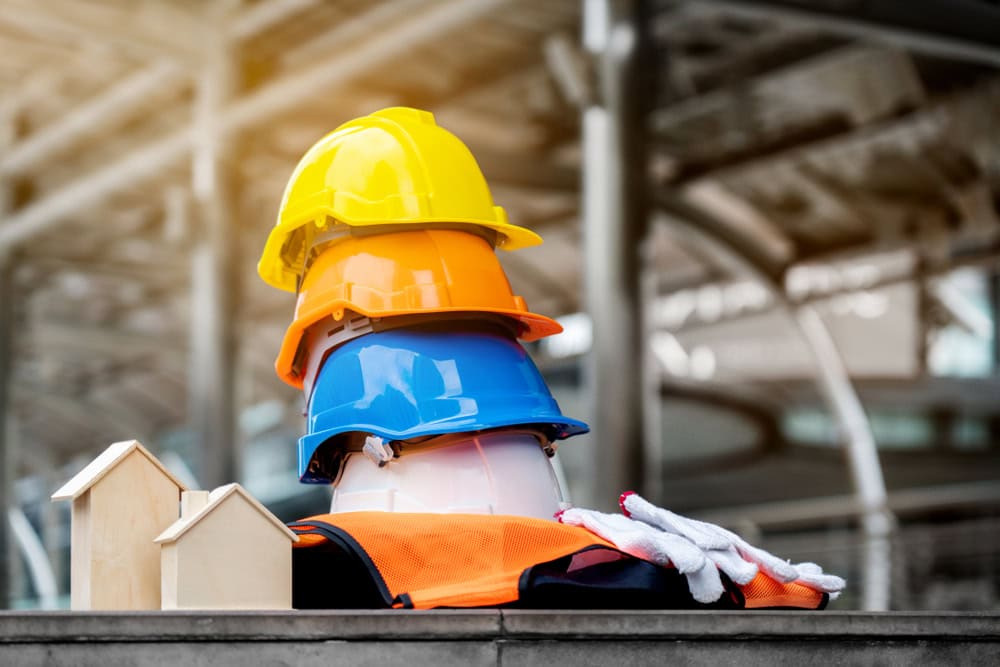Cold and flu season comes for several months out of every year. Once in a while, you’ll see something bigger that feels out of control. Novel coronavirus, currently known as “COVID-19,” has many symptoms similar to the flu and is spread in a similar fashion. But since there’s no vaccine for it yet, there’s a high likelihood that people can catch it. Here’s what you need to know and how you can minimize your personal risk on the jobsite.
What Is Novel Coronavirus?
There are a lot of viruses out there that humans can catch. Every time you get a cold, you are dealing with a type of coronavirus. Influenza is another type of virus with several strains that humans can get from one year to the next. A novel coronavirus is a virus that hasn’t been introduced in a human population before. This means that, unlike the common cold, people may not have the same type of resistance built up. In many cases, people are more likely to get sick from this virus. It also means that there is no vaccine yet to prevent it.
What Symptoms Should I Watch For?
Since there are so many viruses that you can catch during cold and flu season, it is important to understand the difference between them. For most people, a cold with a runny nose is not particularly serious. Influenza can be much more of a big deal, which is why lots of people receive vaccinations for it each year to help the spread and minimize the extent of the sickness. You should watch out for the following symptoms of COVID-19:
- Fever
- Coughing
- Difficulty breathing
If this sounds relatively similar to the flu, that is because they are alike in many ways. The main difference is that COVID-19 is known to cause respiratory distress, where the flu is more likely to cause headaches or fatigue.
Why Is COVID-19 So Concerning?
The biggest reason that people are worried about novel coronavirus is that as a new virus, researchers know very little about it. They can guess but they aren’t sure how long you could have the virus before you start to show symptoms, or how serious and likely the long-term risks of the virus may be. Even discerning how much of the population is likely to contract it is up in the air at this point. Given the fact the coronavirus may be deadly to certain vulnerable populations, people are understandably concerned. Taking reasonable precautions is the best way to minimize risk throughout the community, not just for yourself and your family.
Will I Have to Stop Working During the Coronavirus Pandemic?
As the situation evolves quickly, it may not be possible to accurately predict what will happen in the United States related to attempts to contain the spread of the virus. In places like Italy, the government has limited people’s movement as much as possible, restricting them to home in most cases. However, this may not be likely or necessary in all parts of the world. Ultimately, the best thing that you can do is to pay attention to city and state guidelines as they develop. But outside of industries like healthcare, where the risk level and the likelihood of transmission are high, most people may be able to continue work as usual.
How Can I Minimize My Risk of Contracting Coronavirus?
Since this virus may possibly be spread over the air, the safest thing that you can do is to stay home if you are sick and encourage your workers to do the same. If you observe any of the most common symptoms of COVID-19, your best bet is to seek medical attention promptly. Otherwise, practicing safe sanitation on and off the jobsite is most helpful. Remember to wash your hands for at least 20 seconds, avoid touching your face, and use hand sanitizer when handwashing isn’t an option.
Trying to run a business during a pandemic is stressful, but it could be worse. With these tips, you can safely get through to the other side. To learn more about building your own contracting business, visit CSLS today!

